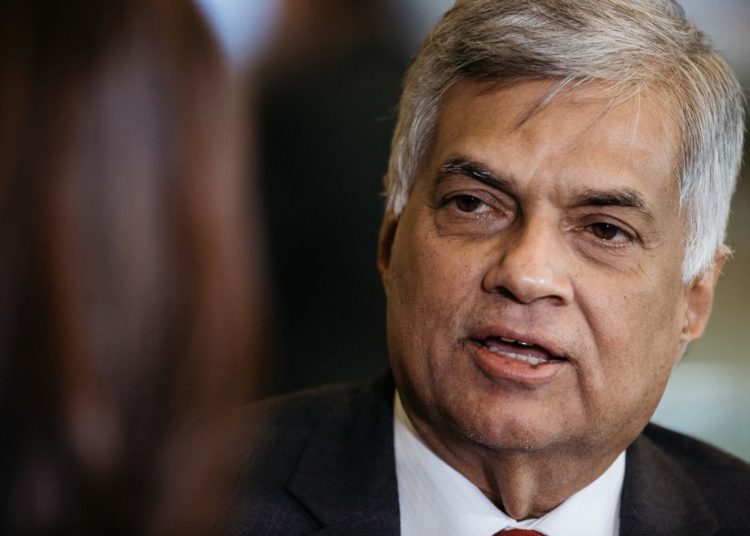Sri Lanka’s Prime Minister, Ranil Wickremesinghe, who has been appointed acting president has declared a Nationwide State of emergency, following days of protests that forced President Gotabaya Rajapaska to flee the country.
The speaker of parliament on Wednesday announced the choice of Wickremesinghe in a move expected to douse the protests against the former President.
Protesters have stormed the prime minister’s office trying to gain access. They had on Saturday set the prime minister’s residence on fire.
Mr Rajapaksa on Tuesday fled the country in a military jet to an unknown destination. However, BBC is reporting that he has landed in the Maldives which is believed not to be his final destination.
The BBC also reported that Mr Rajapaksa’s resignation has been written but will only be tendered when he gets to his final destination.
The prime minister had also said he would leave office when a new government is in place. No date has been fixed for his resignation.
Lawmakers say they will elect a new president by July 20.
The 22 million Sri Lankans have been suffering a horrifying financial turmoil with severe shortages of fuel, medicine, food and other essentials amid record-high inflation and a devaluation of the country’s currency. A severe lack of foreign exchange has stalled imports.
The acute shortage of fuel has crippled transportation systems in the country and stopped children from going to school among others.
The same economic crisis and protests led to the resignations of Basil Rajapaksa, a brother to Sri Lanka’s outgoing president and the country’s former finance minister, from parliament in June and their older brother Mahinda Rajapaksa, as prime minister, in May.
Sri Lanka is nearly bankrupt and has suspended repayment of its foreign loans with foreign reserves near empty. It announced in April that it was suspending repayment of foreign loans due to a foreign currency shortage.
Its total foreign debt amounts to $51 billion. Out of this, it must repay $28 billion by the end of 2027.
Headline inflation in Sri Lanka hit 54.6 per cent last month, and the central bank has warned that it could rise to 70 per cent in the coming months as the country is relying on aid from India and other nations.
Party leaders are in discussions with the International Monetary Fund (IMF) for a three billion-dollar bailout. Government must raise interest rates and taxes as a condition for the loan.
However, World Bank has agreed to give the financially distraught country a $600 million loan.











